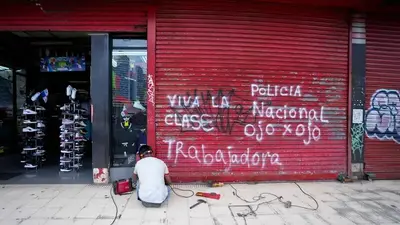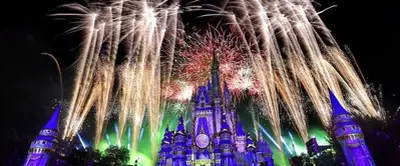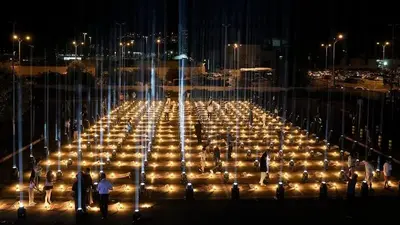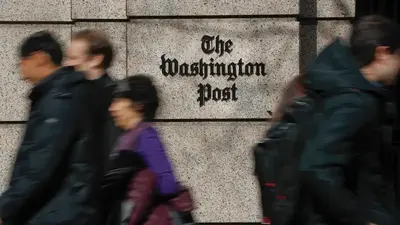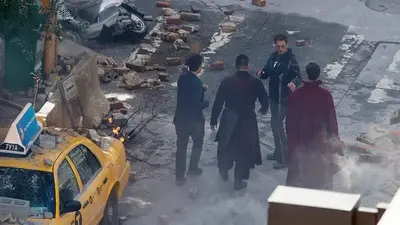Business
Sri Lankan president's visit to India signals growing economic and energy ties
NEW DELHI -- Sri Lanka and India signed a series of energy, development and trade agreements on Friday, signaling growing economic ties between the neighboring countries.
Sri Lankan President Ranil Wickremesinghe arrived in New Delhi a day earlier for the official visit, his first since taking up the top job last year after an economic meltdown forced his predecessor to flee.
On Friday, he held talks with Indian Prime Minister Narendra Modi and the two leaders unveiled agreements on technology, renewable energy and greater connectivity designed to deepen bilateral relations between India and Sri Lanka.
“My visit to India has provided an opportunity to review our bilateral relationship, leverage the strength of geographical and civilizational links, reinforced trust and confidence for our future prosperity in the modern world,” Wickremesinghe said.
Modi said the two leaders adopted a vision to boost their economic cooperation, including strengthening martime, air and energy connectivity between their citizens and accelerating mutual cooperation in tourism, trade and higher Education.
“The past one year has been full of challenges for the people of Sri Lanka. Being a close friend, as always, we stand shoulder-to-shoulder with the people of Sri Lanka,” Modi said in his remarks.
Relations between the two countries surged last year when Sri Lanka was mired in its worst economic crisis in modern history, triggered by a severe foreign currency crunch that saw essential items run out and citizens queue for fuel for days. It also suspended its repayment of foreign debt last year.
India provided critical financial and humanitarian assistance worth over $4 billion to its neighbor, including food, medicine and fuel, aimed at injecting much-needed stability as its bankrupt neighbor battled outstanding total debt of over $83 billion, of which $41.5 billion was foreign.
It was also the first creditor to extend a letter of support towards Sri Lanka’s debt restructuring efforts that helped kickstart support from the IMF, which approved a $3 billion bailout package in March.
The visit is “a clear signal that India’s support over the last year is appreciated,” said Constantino Xavier, a fellow at the Centre for Social and Economic Progress. It shows that India “will be the most important partner for Sri Lanka to reset its economy, its bureaucracy, its decision making systems for future economic partnerships,” he added. "This visit marks, in that sense, a new chapter.”
Sri Lanka's strategic location in the Indian Ocean has long attracted attention from regional rivals India and China. For years, free-flowing loans and infrastructure investments from Beijing helped it gain an upper hand against New Delhi in the quest for influence.
But the economic collapse gave New Delhi an opportunity to swing the pendulum back in its favor, especially as China delayed its support for debt restructuring, experts say. China owns about 10% of Sri Lanka’s foreign debt.
In a nod to the rising ties, Modi and Wickremesinghe hailed trade opportunities in energy and infrastructure. That included the potential for a petroleum pipeline from southern India to Sri Lanka and developing Trincomalee, a northeastern coastal city in Sri Lanka, into an industrial hub.
“We are seeing an increasing mode of competition, sometimes even conflict, between India and China playing out in countries like Sri Lanka, where they’re often competing for the same projects on infrastructure, energy and even political influence in Sri Lanka,” Xavier said.
The two leaders also expressed support to fully implement an India-backed scheme to share power with Sri Lanka's ethnic minority Tamil population in the island's north and east provinces. The minority holds linguistic and cultural ties with Tamils in southern India.
A civil war between the majority Sinhala-controlled Sri Lankan government and ethnic Tamil rebels killed at least 100,000 people, according to U.N. conservative calculations, before it ended with the rebels’ defeat in 2009.
“We hope that the government of Sri Lanka will fulfill the aspirations of the Tamils,” Modi said.
Wickremesinghe said he presented Modi with a proposal for reconciliation and power sharing, saying he has urged his parliament to reach a consensus and resolve the long-running conflict. His delegation also included two Sri Lankan Tamil ministers.
Sri Lankan governments over the years have pledged to India that they will share more power with Tamils to ensure peace and fully implement the 13th Amendment, which created provincial councils with a degree of decentralized powers. But they have so far failed to do so, much to the dismay of both Tamil political leaders in Sri Lanka and in India.
“India must put pressure on Wickremesinghe and the opposition to be genuine and solve the problem,” said Jehan Perera, a political analyst based in Colombo.
The economy has shown signs of improvement since Wickremesinghe took over as president last year. Shortages have been alleviated, power cuts have ended and the rupee has begun to strengthen. But he has struggled to gain the support of the opposition parties, which he needs to make progress on any power-sharing agreement.
“So much money can come from the Tamil diaspora if we fix this problem - a lot of diaspora Tamils are willing to help if Sri Lanka treats its Tamil people fairly,” Perera added.
—
Mallawarachi reported from Colombo, Sri Lanka.
-

 Business3h ago
Business3h agoUS long-term care costs are sky-high, but Washington state’s new way to help pay for them could be nixed
-
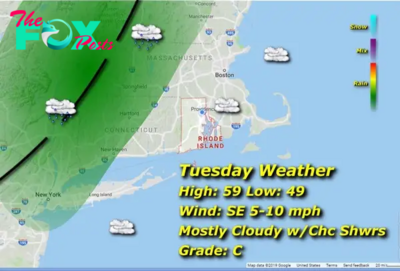
 Business8h ago
Business8h agoRhode Island Weather for April 30, 2024 – John Donnelly, meteorologist
-

 Business8h ago
Business8h agoJoe Andruzzi Foundation launches UniCORN: Comprehensive New England cancer resources
-
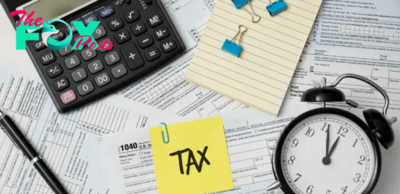
 Business11h ago
Business11h agoThe Importance of Accounting and Tax Services for Individuals and Businesses
-

 Business20h ago
Business20h agoHigher Education Access Key In 2025 New York State Budget
-

 Business1d ago
Business1d agoNext-Level Networking: Small Businesses Embrace Unique Business Card Strategies
-

 Business1d ago
Business1d agoScott Dylan: Pioneering Fresh Thinking in Entrepreneurship
-
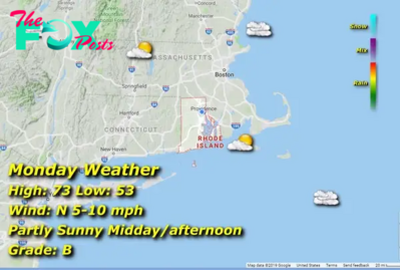
 Business1d ago
Business1d agoRhode Island Weather for April 29, 2024 – John Donnelly
